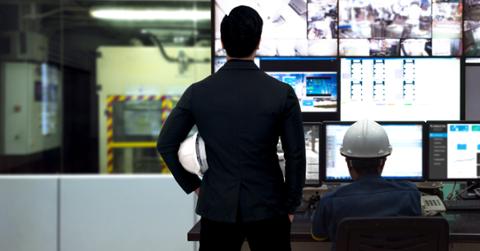The COVID-19 pandemic is raising new questions about the pace of automation. Yes, the virus has radically shifted how companies operate—but will they use these disruptions to accelerate their automation timetables?
Automation certainly saves money, and many companies that survive the pandemic will inevitably look for ways to reduce their overhead. But the impact of software and hardware automation may still vary from industry to industry; for example, those firms with substantial warehouse and shipping operations may look more to robots to carry out the work.
“Even after Covid-19 passes, companies will want to pandemic-proof their operations,” Carl Benedikt Frey, author of ‘The Technology Trap’ and director of the Future of Work program at the Oxford Martin School, recently wrote in the Financial Times. “Ecommerce has been boosted by social distancing, but pressure has meanwhile mounted on online retailers as their warehouses have become overcrowded.”
Long before COVID-19 became an issue, pundits were predicting that automation would radically change the nature of the workforce over the next decade. In November 2019, for instance, a report by Bank of America Merrill Lynchpredicted that automation would delete 800 million human jobs by 2035. Way back in 2017, the McKinsey Global Institute also cited a 800-million figure, including anywhere from 39 million to 73 million jobs impacted in the United States.
That’s more than just warehouse workers; indeed, a significant portion of the workforce was already suspicious of automation’s potential impact long before those studies. “Most Americans also expressed support for policies aimed at limiting automation to certain jobs or cushioning its economic impact,” read one Pew survey from 2019. “A large majority (85 percent) said they would support restricting workforce automation to jobs that are dangerous or unhealthy for humans to do.”
If COVID-19 really does accelerate the trend toward automation, it’s worth examining which jobs—particularly tech jobs—are most “immune.” Here’s a list generated by Burning Glass, which collects and analyzes job postings and other data from across the country; based off its algorithms, it has determined that the following jobs are at low risk of automation over the next decade or so:
At first glance, these jobs seem pretty diverse. However, many have a common thread: creativity and the ability to think abstractly. For example, a software developer must come up with ingenious solutions to problems; analysts must intuitively grasp what data is trying to tell them; and administrators of all types must not only think long-term, but figure out how to best balance the competing needs of a particular system.
Aspects of these jobs will certainly be automated in coming years—for example, there’s been a notable rise in “no code” and “low code” platforms that allow pretty much anyone to assemble simple apps and games. But technologists who find themselves in greatest demand will possess a combination of higher-level skills, creativity, and “soft skills” (such as communication and empathy) that will likely remain beyond the abilities of automation for quite some time to come—no matter what impact COVID-19 has on tech jobs.



